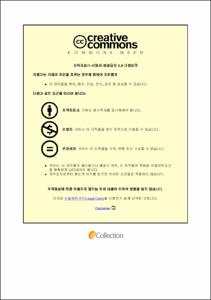한국 조선 산업의 재부상과 전략적 대응
- Abstract
- Korea's shipbuilding industry succeeded in securing industry leadership by recording the world's No. 1 volume of construction since the 2000s, but handed over its status to China in about a decade. Recently it has recovered its status as the No. 1 shipbuilding industry in terms of orders since 2018 as it ranked first in terms of high value-added ships such as Mega container, LNG carrier, and Very Large Crude Carrier (VLCC).
Accordingly, this study demonstrated the high value-added shipbuilding orders of Korea's shipbuilding industry and the limitations of China's shipbuilding industry in terms of catch-up cycle theory. The study confirmed that the eco-friendly energy policy, the drop in LNG prices following the development of shale gas in the United States, the increase in LNG carrier demand due to the increase in LNG demand, and the increase in demand for Mega container/crude carrier to reduce transportation costs created a favorable business environment for the Korean shipbuilding industry.
In addition, a window of demand, policy, and technological opportunities was provided in response to the expansion of IMO's regulations on exhaust gas and the expansion of natural gas fuel-propelled vessel demand .In response to this, the Korean shipbuilding industry is rapidly responding to the needs of the market, such as the merger of Hyundai and Daewoo, the development of advanced technology for LNG, securing competitiveness in technology for eco-friendly and high efficiency, and large-sized ships.
This study is of theoretical significance in that it added the latest demonstration of the Return of Old Leadership, which lacks empirical cases, among the phenomenon of industrial leadership transfer. It is also meaningful in that the revival of the Korean shipbuilding industry was systematically analyzed from the perspective of high value-added sectors, suggesting the need for re-examination of traditional major industries and detailed policy support.
- Issued Date
- 2020
- Awarded Date
- 2020. 8
- Type
- Dissertation
- Keyword
- 선발자의 주도권 회복 주도권 고부가가치 선종 추격 사이클 실증
- Publisher
- 부경대학교
- Alternative Author(s)
- Hae Sung Yang
- Affiliation
- 부경대학교 기술경영전문대학원
- Department
- 기술경영전문대학원 기술경영학과
- Advisor
- 곽기호
- Table Of Contents
- Ⅰ. 서론 1
Ⅱ. 배경이론 및 선행연구 4
1. 추격 사이클 이론 4
2. 조선 산업의 주도권 이전 관련 선행 연구 7
Ⅲ. 조선 산업의 특성 9
Ⅳ. 한국 조선 산업의 재부상: 고부가가치선종에서의 성과 13
1. 고부가가치 선종 정의 13
2. 고부가가치 선종에서의 성과 15
가. 고부가 가치 선종에서의 한국 조선의 성과 15
나. 기회의 창 17
(1) 수요 기회의 창 17
(2) 정책 기회의 창 23
(3) 기술 기회의 창 28
다. 한국 조선의 전략적 대응 32
3. 중국 조선 산업의 한계 37
가. 중국 정부의 조선 산업 육성 정책 37
나. 중국 조선 기업의 한계 40
Ⅴ. 결론 45
참고 문헌 50
1. 국내 문헌 50
2. 해외 문헌 56
감사의 글 58
- Degree
- Master
- Files in This Item:
-
-
Download
 한국 조선 산업의 재부상과 전략적 대응.pdf
기타 데이터 / 1.01 MB / Adobe PDF
한국 조선 산업의 재부상과 전략적 대응.pdf
기타 데이터 / 1.01 MB / Adobe PDF
-
Items in Repository are protected by copyright, with all rights reserved, unless otherwise indicated.